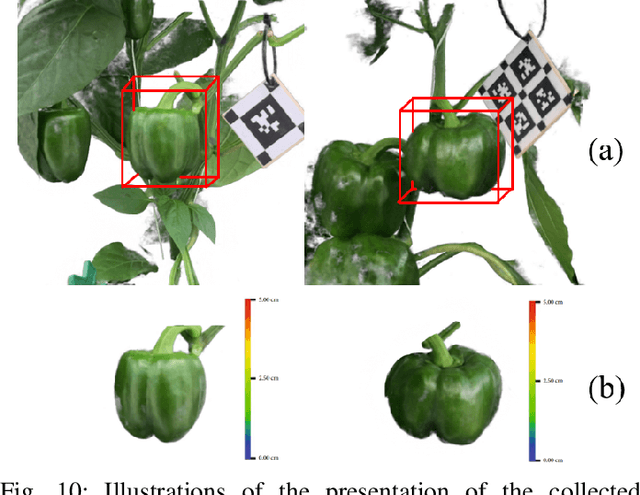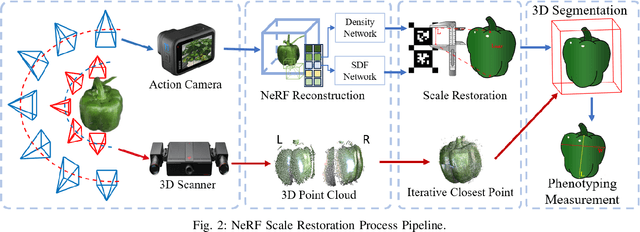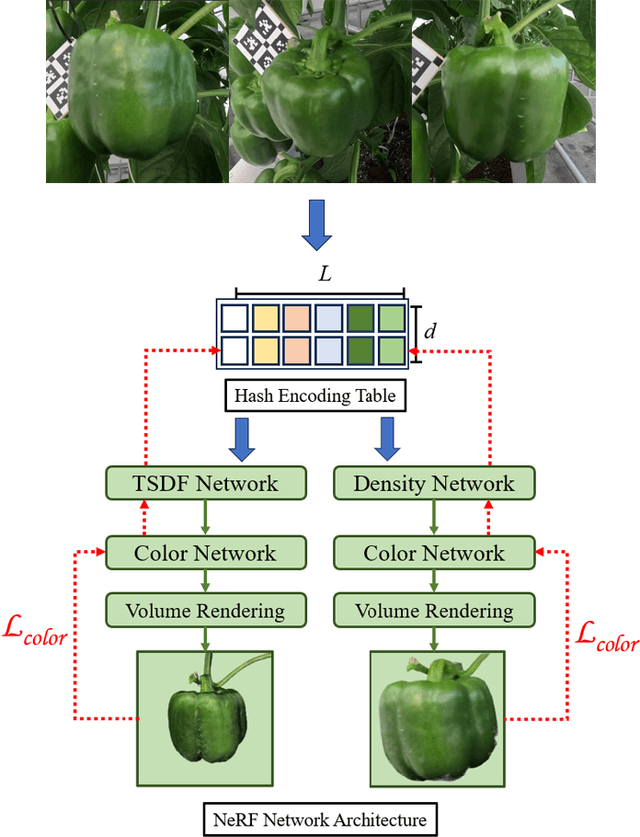Exploring Accurate 3D Phenotyping in Greenhouse through Neural Radiance Fields
Paper and Code
Mar 28, 2024



Accurate collection of plant phenotyping is critical to optimising sustainable farming practices in precision agriculture. Traditional phenotyping in controlled laboratory environments, while valuable, falls short in understanding plant growth under real-world conditions. Emerging sensor and digital technologies offer a promising approach for direct phenotyping of plants in farm environments. This study investigates a learning-based phenotyping method using the Neural Radiance Field to achieve accurate in-situ phenotyping of pepper plants in greenhouse environments. To quantitatively evaluate the performance of this method, traditional point cloud registration on 3D scanning data is implemented for comparison. Experimental result shows that NeRF(Neural Radiance Fields) achieves competitive accuracy compared to the 3D scanning methods. The mean distance error between the scanner-based method and the NeRF-based method is 0.865mm. This study shows that the learning-based NeRF method achieves similar accuracy to 3D scanning-based methods but with improved scalability and robustness.
 Add to Chrome
Add to Chrome Add to Firefox
Add to Firefox Add to Edge
Add to Edge